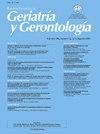Envejecer con sentido. Un estudio cualitativo y multicultural
Q3 Medicine
引用次数: 0
Abstract
Introduction
Currently in Catalonia, multiculturalism is increasing, also among older people. However, little is known about the aspects that give meaning to aging or whether there are differences by origin and culture.
Objectives
Identify what it means to age meaningfully for people over 50 years of age from different origins and cultures.
Method
We present a study carried out with people over 50 years of age from different cultures who live together in the Alt Empordà region (Girona). We have worked with qualitative methodology, 7 focus groups and 2 in-depth interviews.
Results
We identified 9 factors to age meaningfully: 1- Having basic needs covered. 2- Spirituality. 3- Family. 4- Contributing socially/feeling useful. 5- Carrying out leisure activities. 6- Accepting aging. 7- Being able to choose where and how to grow old and die. 8- Visualize the elderly and 9- Personalized attention. The differences between the priorities of these 9 factors have led us to describe three ways of aging with meaning: a) Aging of contemplation, b) Aging enjoying opportunities and c) Aging claiming to be full-fledged agents.
Conclusions
The group of older people is heterogeneous in the same way as the rest of society. This heterogeneity implies different ways of understanding old age with meaning as well as the needs that arise. It is important to work with social and health professionals so that they understand the need to know the person and their interests to better personalize care.
[有意义的老龄化:定性和多元文化研究]。
目前在加泰罗尼亚,多元文化主义正在增加,在老年人中也是如此。然而,关于赋予衰老意义的方面,或者是否存在起源和文化的差异,人们知之甚少。目标:确定50岁以上不同出身和文化背景的人如何有意义地变老。方法:我们提出了一项研究,对50岁以上的人进行了研究,他们来自不同的文化,共同生活在阿尔恩波尔顿地区(赫罗纳)。我们采用了定性方法,7个焦点小组和2个深度访谈。结果:我们确定了有意义的9个因素:1-基本需求得到满足。2-精神,3-家庭,4-社会贡献/感觉有用。(五)开展休闲活动。6 .接受衰老。7-能够选择在哪里以及如何变老和死亡。8-想象老年人9-个性化的关注。这9个因素的优先顺序的不同,使我们有意义地描述了三种衰老方式:a)沉思的衰老,b)享受机会的衰老,c)声称自己是成熟的代理人的衰老。结论:老年人群体与社会其他群体一样具有异质性。这种异质性意味着理解老年的意义和需求的不同方式。重要的是要与社会和卫生专业人员合作,以便他们了解了解患者的必要性和他们的兴趣,以便更好地进行个性化护理。
本文章由计算机程序翻译,如有差异,请以英文原文为准。
求助全文
约1分钟内获得全文
求助全文
来源期刊

Revista Espanola de Geriatria y Gerontologia
Medicine-Medicine (miscellaneous)
CiteScore
1.90
自引率
0.00%
发文量
62
审稿时长
85 days
期刊介绍:
Una revista de gran prestigio por sus artículos originales de investigación y revisiones. Permite cubrir todas las áreas de la medicina pero siempre desde la atención al paciente anciano, y está presente en los más reconocidos índices internacionales.
 求助内容:
求助内容: 应助结果提醒方式:
应助结果提醒方式:


